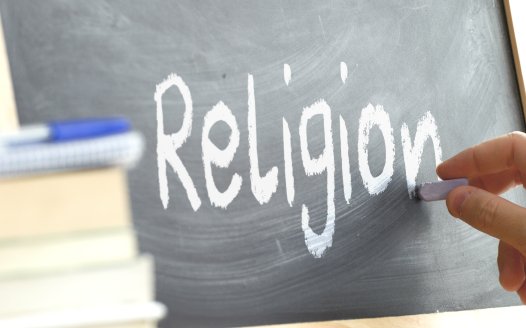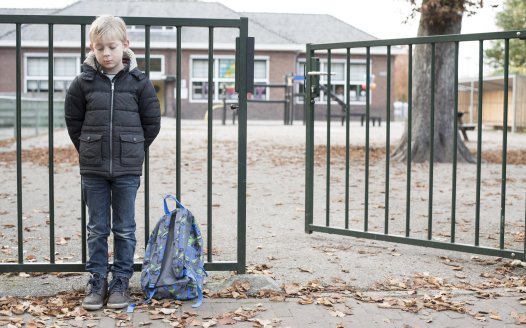New guidance on independent schools: analysis of hard-line opposition and DfE concessions
Posted: Fri, 3rd May 2019 by Alastair Lichten
The government has published new guidance on independent schools, amid systemic failings by independent faith schools. Alastair Lichten looks at what's changed and how the DfE has handled religious groups' demands.
As reported by the NSS, the Department for Education has published its updated guidance on the Independent School Standards, a policy statement on how it will be enforcing these standards and assessments of how these meet the UK's responsibilities under the UN Convention on the Rights of the Child.
When these draft documents were consulted on in May 2018 the National Secular Society welcomed them as striking the right balance between safeguarding children's rights and the autonomy of families and independent schools. Alongside the guidance, the DfE has published its official response to the consultation. It sets out its rationale for making or not making specific changes since the draft guidance.
Against the backdrop of a growing crisis in the independent faith school sector, the response gives insight into the extreme opposition by some to any oversight.
Under the guidance on quality of education thousands of objections were received, with the vast majority focusing on the requirements that: PSHE curricula encourage respect for people with different protected characteristics; creationism not be taught as a valid scientific theory; and schools provide career advice.
PSHE/protected characteristics
The guidance makes absolutely clear that independent faith schools can do things like teach that their religion is right and all others sinful or that they believe same-sex marriage is wrong, as long as they still encourage respect for people with all the different Equality Act protected characteristics. Of course teaching that people of different religions and sexualities exist and have rights is a bit too far for some independent faith schools.
Typical comments objecting to this included:
"As a Christian parent of a child in a Christian School, living in what has always until now been a Christian country with God fearing principles, I find it abhorrent that the DfE is planning to force schools to not only teach but actually support such principles as same sex marriage."
"I believe that all schools should teach tolerance and respect for every person regardless of religion, race, ethnicity or gender, however I strongly object to my children being taught about each one of the protected characteristics of the Equalities Act 2010."
Creationism
Teaching creationism as a valid scientific concept is harmful to children's education in the same way that teaching Flat Eartherism as a valid geographic concept is. The guidance makes clear that creationism can be taught as a religious belief, and parents and religious institutions can teach it. But quite reasonably the guidance expects that this should not be taught in schools.
Typical comments objecting to this included:
"We teach this according to our faith and the children know this is our belief and is written in our Bible. We should not have to teach them other theories – this will only confuse them."
Suggestions by the NSS that the guidance make clear a separation between creationism and science and evidence based views of origins were rejected as: "this is implicit in the guidance".
The government did make an addition to "clarify that holding creationist views should not lead to any lack of respect from others".
Careers advice
For the type of independent faith school that is interested primarily in moulding a child into narrow religious roles, rather than preparing them to make their own choices in life, careers advice can be a bit of a problem, especially the requirement to let boys and girls know that they can both apply for almost any job.
Typical comments objecting to this included:
"I want to be able to choose a school for my child that will teach career guidance compatible with my faith and lifestyle. I don't want the government to force my child's school to promote options that conflict with my faith."
The government thankfully has not watered down this requirement and schools will fail if they are "constraining" careers advice.
Spiritual, Moral, Social and Cultural Development
As part of their duty to promote the "Spiritual, Moral, Social and Cultural" (SMSC) development, independent schools need to prepare pupils to live in diverse 21st century British society, where there are people with different beliefs, sexualities, ethnicities, where men and women interact, there are people with disabilities, etc.
Typical comments objecting to this included:
"Children should not have to mix with others if parents don't wish it. You just can't force some things and you should have more tolerance and respect of our faith based wishes."
"I would like my children to be moral upstanding citizens and would not like them to be told deviant ways of life. School children are way too young to differentiate between what is good for them and what might not work for them. School should not be promoting a way of life different to the children's parents' way of life."
"My religion does not allow for pupils to learn about the achievements about other cultures."
"Christian values are of a higher standard than British values. British values lead to confusion."
"I agree with the general message in part 2 but I still believe that it is unnecessary to teach children details about other faiths and beliefs."
Equality Act 2010 and the UN Convention on the Rights of the Child
The consultation sought views on whether the guidance was consistent with the state's responsibilities under the Equality Act and the Convention on the Rights of the Child.
Typical comments objecting to this included:
"The teachings of the Bible should outweigh The Equalities Act and the UN Convention on the Rights of the Child. Man-made laws should not override these standards"
"All Orthodox schools will be forced to close as they WILL NOT meet the requirements as laid out by the guidance due to its inherent conflict to our faith."
The DfE stuck by its assessment of their guidance without further changes.
Policy statement on enforcing the standards
Most of the opposition to the draft policy statement on how the independent school standards will be enforced was from groups opposed to the standards themselves and to any form of enforcement. The DfE says that "the final published version of the policy statement is not changed fundamentally".
Helpfully the DfE has responded to our concerns over "zombie schools" – schools which repeatedly fail the standards but carry on regardless – to clarify that failing schools will "will not be able to remain indefinitely in a loop of action plans and re-inspection". It has also made clear it does not believe that "that parental views should result in a situation in which some schools are automatically treated differently from others by, in effect, being immune from enforcement action for breaching certain standards". It claims schools cannot "pick and choose which standards a school needs to comply with".
Much less helpfully, in an apparent concession to hard-line religious groups which will surely encourage more attempts to avoid the standards, they have amended the statement "to the effect that enforcement action will not normally occur if there are only one or two unmet requirements from the standards".
No one argues that enforcement of the independent school standards shouldn't be "proportionate" or that minor transgressions aren't sometimes best addressed informally. But opening the door for hard-line faith schools to simply (try to) ignore the "one or two" standards they most object to is encouraging them to "pick and choose".
While you're here
Our news and opinion content is an important part of our campaigns work. Many articles involve a lot of research by our campaigns team. If you value this output, please consider supporting us today.








